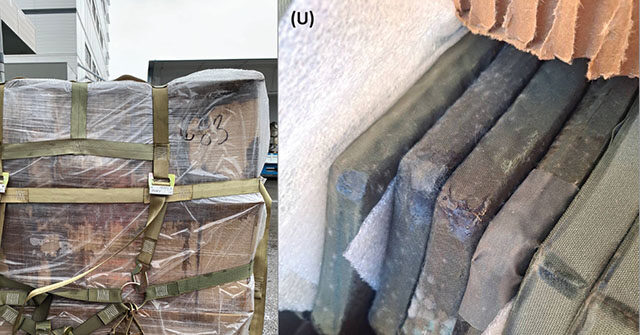Senator Joni Ernst (R-IA) has taken a vocal stance regarding a significant oversight by the Department of Defense (DoD) in sending military supplies to Taiwan, which the Pentagon has acknowledged included expired and unusable equipment, some of which was moldy. In a letter addressed to Defense Secretary Lloyd Austin, Ernst expressed her concern over the audit conducted by the DoD Office of the Inspector General that uncovered these troubling details. The audit revealed that the Pentagon delivered “unserviceable and poorly packaged equipment and munitions” to Taiwan between November 2023 and March 2024, which reportedly amounted to wasteful expenditures of more than $700,000 in taxpayer money to rectify the situation. Highlighting the seriousness of the matter, Ernst described it as an “embarrassing debacle” that could undermine international trust in U.S. military commitments.
The timing of these shipments raises further scrutiny, occurring simultaneously with heightened tensions between the U.S. and China, especially since President Joe Biden met with Chinese President Xi Jinping during the period when the shipments were dispatched. Xi has consistently maintained that Taiwan is part of China, and this meeting reportedly involved discussions around urging the Biden administration to cease military support to Taiwan. Ernst’s letter to Austin pointed out the implications of such actions, cautioning that sending mishandled military aid could weaken deterrence against China and jeopardize relations with U.S. allies, particularly in a region where security dynamics are increasingly delicate.
Further criticism from Ernst highlighted what she characterized as a broader pattern of incompetence from the Biden administration, suggesting that the sending of poorly managed military aid to Taiwan was emblematic of a larger issue regarding U.S. foreign policy. The contrast in U.S. funding priorities was stark in Ernst’s remarks, who pointed out that while the administration seemed willing to financially support political adversaries, they failed to deliver reliable military assistance to an important ally such as Taiwan. This inconsistency, according to Ernst, reflects deeper flaws in the administration’s approach to defense and allies, a view she reinforced by referencing the administration’s overall strategy towards China.
Senator Ernst called for a thorough assessment of the situation, insisting on transparency regarding the financial implications, specifically the origin of the $730,000 needed to correct the mistakes associated with the mishandled shipments. More importantly, she demanded clarity on the operational protocols within the Pentagon to prevent similar mishaps from occurring in the future. Notably, the senator expressed concern not only for Taiwan but also for the potential ripple effects on global U.S. defense credibility if such issues continue, stressing that trust in U.S. commitments to its allies and partners hangs in a precarious balance.
Compounding the administration’s navigational issues regarding Taiwan has been President Biden’s contradictory statements over the U.S.’s obligations to the island. Historically, the relationship with Taiwan has been complicated; the U.S. has not formally recognized Taiwan as a separate nation since the Carter administration, complicating Biden’s declarations of commitment to Taiwan’s defense in the event of a conflict with China. His earlier assertions appeared to create a narrative of defense commitment despite official disclaimers from the White House, resulting in confusion over U.S. foreign policy towards Taiwan.
Biden’s attempts to engage positively with Xi Jinping, highlighted by claims of a long-standing personal relationship with the Chinese leader, contrasts sharply with the serious threats posed by Xi to Taiwan and the geopolitical risks resulting from the current administration’s policies. As tensions between the U.S. and China escalate, especially around Taiwan, Ernst’s strong criticism emphasizes the urgent need for a coherent strategy that addresses the complexities of U.S. international commitments. Ultimately, the administration is faced with the imperative to restore confidence among its allies and assert a clear and effective policy towards both Taiwan and China’s growing aggression in the region.

